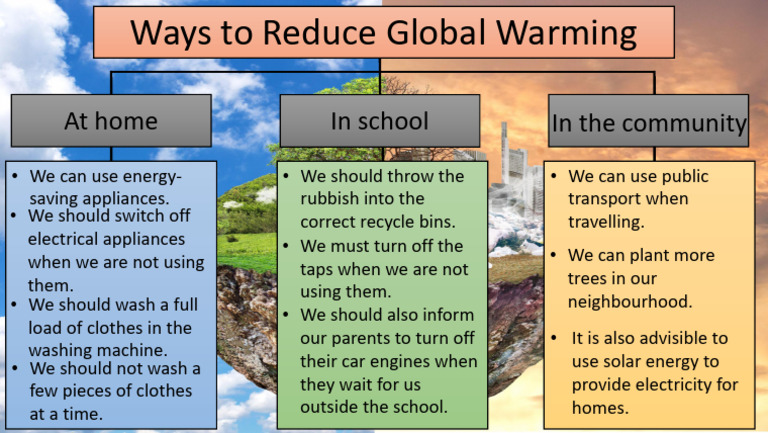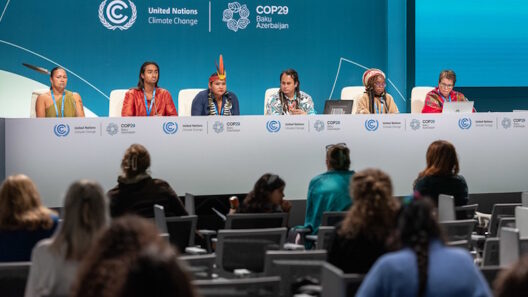Global warming stands as one of the most daunting challenges of our time, urging immediate action from individuals and communities alike. This phenomenon, driven by the relentless accumulation of greenhouse gases in the atmosphere, has been linked to catastrophic climate events, rising sea levels, and various health implications. You might ask, “How can I help fight global warming?” Fortunately, adopting certain habits can significantly contribute to mitigating this crisis. Here’s a comprehensive look at practical steps you can incorporate into your daily life.
1. Embrace Energy Efficiency
Energy efficiency is foundational in combating global warming. By minimizing energy consumption, you contribute to a reduction in carbon emissions. Start small by replacing incandescent bulbs with LED alternatives, which consume up to 80% less energy. Invest in Energy Star-rated appliances, as they are designed to use less energy without sacrificing performance. Additionally, consider utilizing programmable thermostats, which adjust heating and cooling automatically, optimizing energy use when you’re not home.
Your home’s insulation may also require attention. Adequate insulation, weather stripping, and caulking can significantly reduce heating and cooling demands. When confronted with rising utility bills, think about the environmental toll, and understand that these upgrades are investments in a sustainable future.
2. Choose Sustainable Transportation
Transportation is a significant contributor to carbon emissions. Opting for sustainable alternatives can drastically reduce your personal footprint. Consider public transit systems, which transport numerous individuals simultaneously, thereby lowering per capita emissions. For shorter distances, cycling or walking not only cuts down on emissions but also promotes personal health.
If driving is essential, contemplate transitioning to a hybrid or electric vehicle. These vehicles utilize less fossil fuel and produce fewer greenhouse gas emissions than conventional gasoline-powered cars. Furthermore, carpooling with colleagues or friends can yield significant reductions in your carbon footprint while fostering community ties.
3. Implement Waste Reduction Practices
Waste generates a plethora of environmental dilemmas, from landfill overflow to methane emissions. Initiating waste reduction practices can spearhead your fight against global warming. Start by embracing the three R’s: Reduce, Reuse, and Recycle. Limit single-use items by acquiring reusable bags, water bottles, and containers. These changes may seem trivial, but collectively they bear vast implications for environmental preservation.
Composting organic waste is another productive strategy. Rather than succumbing to landfilling food scraps, transform them into nutrient-rich compost for your garden. This practice not only reduces landfill contributions but enriches the soil, fostering biodiversity.
4. Advocate Plant-Based Diets
The link between diet and climate change is striking. Livestock production is one of the leading drivers of deforestation, water scarcity, and greenhouse gas emissions. Adopting a plant-based diet, even if just part-time, can be transformative. By reducing meat and dairy consumption, you contribute to a decline in demand for resource-intensive animal agriculture.
Explore local farmers’ markets, as they often offer fresh, seasonal, and diverse produce that requires fewer carbon-intensive transportation methods. As you experiment with new culinary endeavors, remember that every meal is an opportunity to support sustainable practices.
5. Educate and Engage Your Community
Individual efforts must be complemented by collective action. Engage your community members by raising awareness about climate change and sustainable practices. Organize events such as clean-up days, tree-planting initiatives, or workshops focused on sustainability. When people come together for a shared cause, the impact can be profound.
Additionally, utilize social media platforms and local forums to advocate for sustainable policies and practices. By fostering discussions around climate change, you help disseminate knowledge and inspire others to take decisive action.
6. Lobby for Policy Change
As an engaged citizen, advocating for meaningful policy changes is paramount. Educate yourself on local, national, and international climate policies, and communicate with your elected representatives regarding sustainable legislation. Advocate for initiatives that support renewable energy, public transportation improvements, and robust environmental regulations.
You might also consider joining or supporting environmental organizations dedicated to climate action. Through organized movements, your voice amplifies, signaling to policymakers the urgency of addressing global warming and preserving the planet.
7. Conserve Water
Water conservation is another critical component in the fight against global warming. The energy expended to treat and transport water contributes to greenhouse gas emissions. Simple actions such as fixing leaks, taking shorter showers, and using water-efficient fixtures can significantly reduce water waste. Collecting rainwater for gardens and utilizing drought-resistant plants are also effective strategies. Protecting this vital resource is not only beneficial for the environment but essential for future sustainability.
Conclusion
The fight against global warming requires a multifaceted approach, encompassing lifestyle changes, community engagement, and profound advocacy. Each small habit contributes to a larger movement towards environmental sustainability. By embracing these practices, you are not merely a passive observer of climate change; you become an active participant in steering the planet towards a healthier future. Transformation starts with you, and every action counts. Let’s cultivate a collective consciousness that prioritizes the health of our planet for generations to come.








